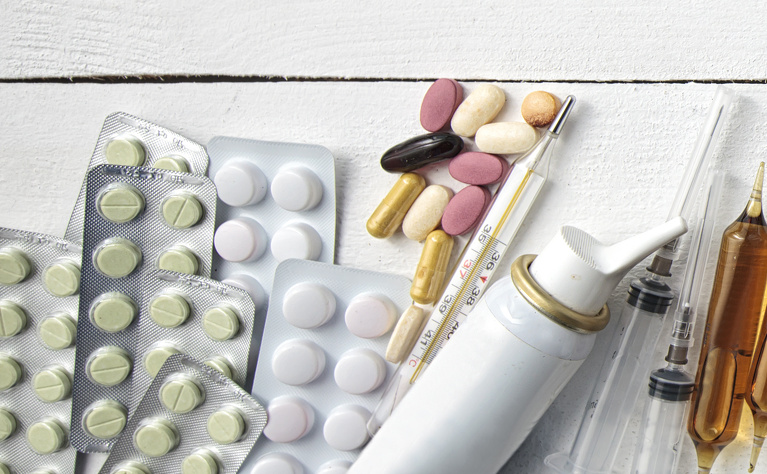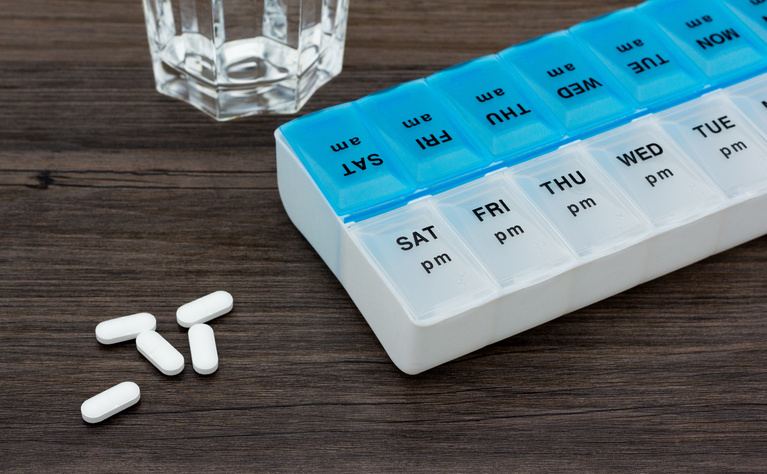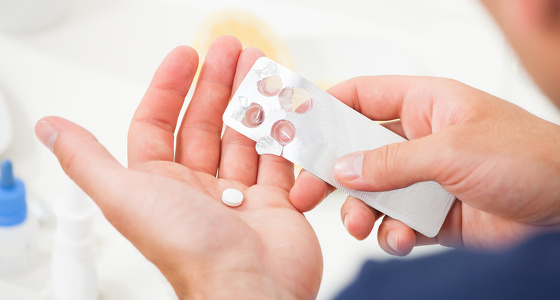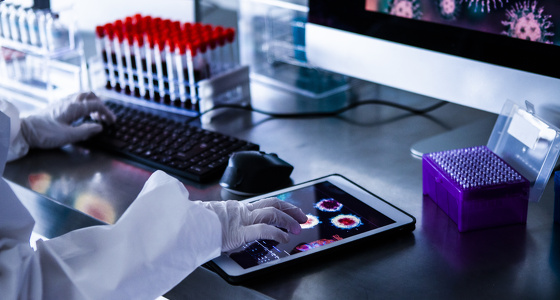Having IBD means it's likely you will need to take medicines long-term. Here's some things to consider to keep on top of your medications...
When you have an inflammatory bowel disease (IBD) like Crohn’s disease or ulcerative colitis it’s likely you will be taking one or more medications. If you are new to taking regular medicines, new to managing them yourself or new to taking multiple medications then it can seem overwhelming. Here’s some things you should make sure you are aware of...

Knowing what medications you are taking, when you should take them and tracking when you’ve actually taken them is really important.
Not only will you need this information for yourself, you may also need to share it with other people, such as GPs, dentists, pharmacists or other medical professionals treating you. It’s also important that each time you receive a new prescription of your medication that you check it against what you have previously been prescribed to make sure it’s the correct medication and dosage. Some medications have different tablet sizes (such as 20mg, 50mg) so make sure these are also the same.
You may wish to keep a dated list of your current medication or a note of them in an app made for this purpose.
To help you keep track of when you have taken your medication you could get a pill box marked with days of the week which you put your medication into, or again there are apps available for logging when you have taken your medication.

You should store your medication in a safe place, away from children, and you should store it all together where possible.
There are some medicines that need to be kept at certain temperatures, such as in a fridge (for example some injectable biologics). Make sure you know if you are taking any medication that needs to be kept in this way.
Ensure none of your medication is out of date and get rid of any that is. You also shouldn't keep hold of any medication that you are no longer taking. Most pharmacies will take old medicines and dispose of them safely.
Keep your medicines in their packaging along with the patient information leaflet so you can refer to it if you need to.
Some medicines, such as self injection biologics, will be delivered to your home by a home delivery company. You can usually arrange delivery dates and request more supplies with the company directly, either by phone or online. You should make sure you keep an eye on your supply levels so you don’t run out before the company can deliver more.
If you are on a long-term medication then your IBD team can often arrange for your GP to issue repeat prescriptions as you need them.
There are a few different ways you may be able to order your repeat prescriptions:
You can arrange for your prescription to be digitally sent to a pharmacist near you so you don’t need to visit the GP surgery to collect paper prescriptions.
Be aware that in the case of some medications your GP may request to see blood test results (such as for azathioprine) to show it is still safe for you to continue taking the medicine. This means your repeat prescription may not be issued until your GP has reviewed your blood test results.
Make sure you read the patient information leaflet (PIL) that comes with your medicine so you are aware of any potential side effects to look out for, how to store your medicine and what other medications (or foods) it may interact with.
Taking your medication as prescribed by your doctor is really important to help control your IBD and to avoid complications. If you are finding this difficult, or aren’t sure when or how to take your medicine, you should speak to your doctor or pharmacist. You also shouldn’t stop taking your medication without speaking to your IBD team first.
Some over the counter medicines can interact with medication used in IBD, and some aren’t suitable for people with IBD to take (such as NSAIDS). This can include herbal and alternative therapies. Always tell your pharmacist that you have Crohn’s disease or ulcerative colitis when buying over the counter medicine and let your IBD team or anyone else prescribing you medicine (such as your GP) what other medicines you are taking.

